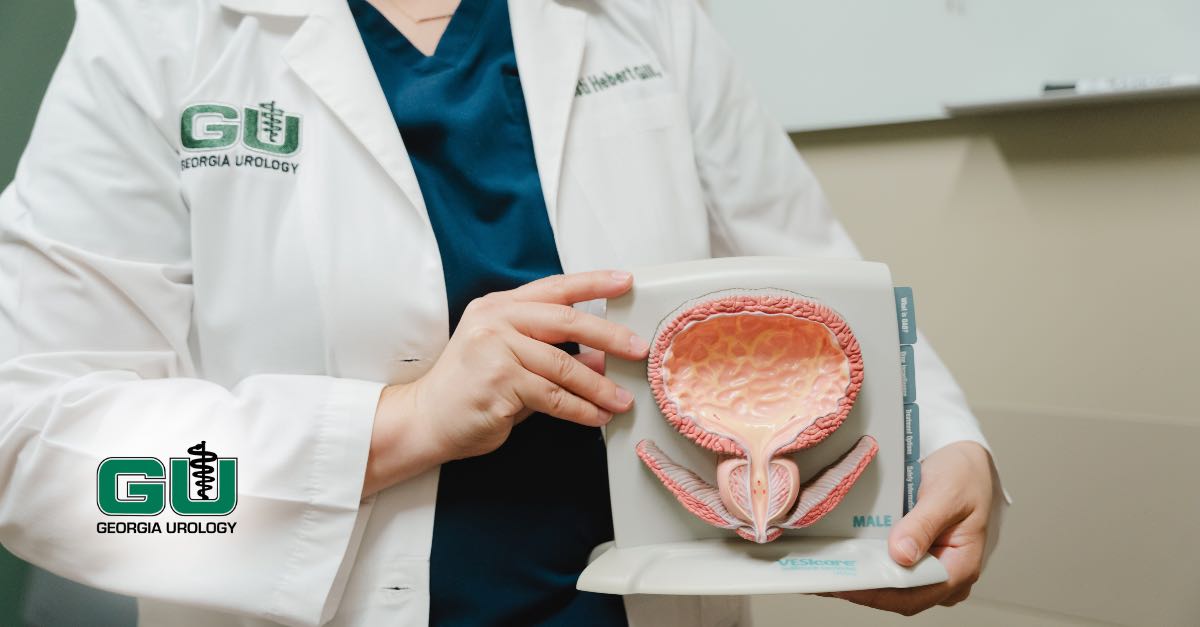Five Different Types of Urinary Leakage
Urinary incontinence (UI) is a common occurrence that manifests with bladder leakage. This condition affects more than 15 million adult women in the U.S. There are five main types of urinary incontinence, each arising from different underlying causes. Georgia Urology treats all five of these types of urinary incontinence, but knowing which one is affecting you is the first step in regaining your confidence and healthy lifestyle. Since each type of leakage is treated differently, it is important to diagnosis the proper condition prior to treatment.
The five types of urinary leakage are:
- Stress Incontinence
Stress incontinence is the most common type of UI among middle-aged women. Men also suffer from it as well but usually after prostate surgery. Stress incontinence is caused by weakness in the pelvic floor muscles and the internal control sphincter, which are the strong network of muscles and tissues that support the bladder and line the urethra. Leakage tends to occur during physical activity such as when laughing, coughing, sneezing, running, or standing up. Among women, stress incontinence can be the result of pregnancy, childbirth, and the hormonal changes that take place around menopause. Prostate surgery is the most common cause of stress incontinence in men. - Urge IncontinenceAlso called overactive bladder, urge incontinence is associated with sudden urges to urinate. This type of urinary incontinence appears mainly due to damage to the nerves that control the bladder and that the flow of urine. In addition, the bladder muscle can be overactive and have spasms, thereby causing leakage that cannot be controlled. Underlying diseases such as multiple sclerosis, diabetes, and strokes can also cause urge incontinence. Temporary symptoms can happen when the bladder muscle itself is irritated, such as with bladder stones, and urinary tract infections, and an enlarged prostate.
- Overflow IncontinenceOverflow incontinence can present with dribbling of urine, sometimes related to a weak bladder muscle or a blockage of the urethra. Men with enlarged prostates or scar tissue in the urethral channel can develop overflow incontinence as the prostate gland presses against the urethra and prevent urine from expelling from the bladder. Nerve injuries and certain types of medications can also lead to overflow incontinence. Patients complain of severe frequency and the inability to fully empty their bladder with uncontrolled leakage.
- Functional IncontinenceFunctional incontinence occurs when medication or an underlying medical issue prevents the ability to hold or control the need to use the restroom, often causing accidents. This can be associated with anatomical abnormalities (such as a fistula) or psychological disorders.
- Mixed IncontinenceWhen stress incontinence and urge incontinence both occur, it’s often referred to as mixed Incontinence. Up to 60% of women with stress incontinence can also have urge incontinence. Both of these incontinences frequently resolve after the stress incontinence is treated.
Identifying the type of incontinence you’re experiencing is the key to making sure you receive the most effective treatment. The doctors at Georgia Urology are skilled in using state-of-the-art testing methods to diagnose the type of incontinence as well as its underlying causes. We will get you back to feeling confident with the best-possible care catered to your specific needs. If you’re suffering from symptoms of incontinence, don’t delay care. Contact Georgia Urology to schedule an evaluation and consultation today and if you have further questions about the five different types of urinary leakage.



